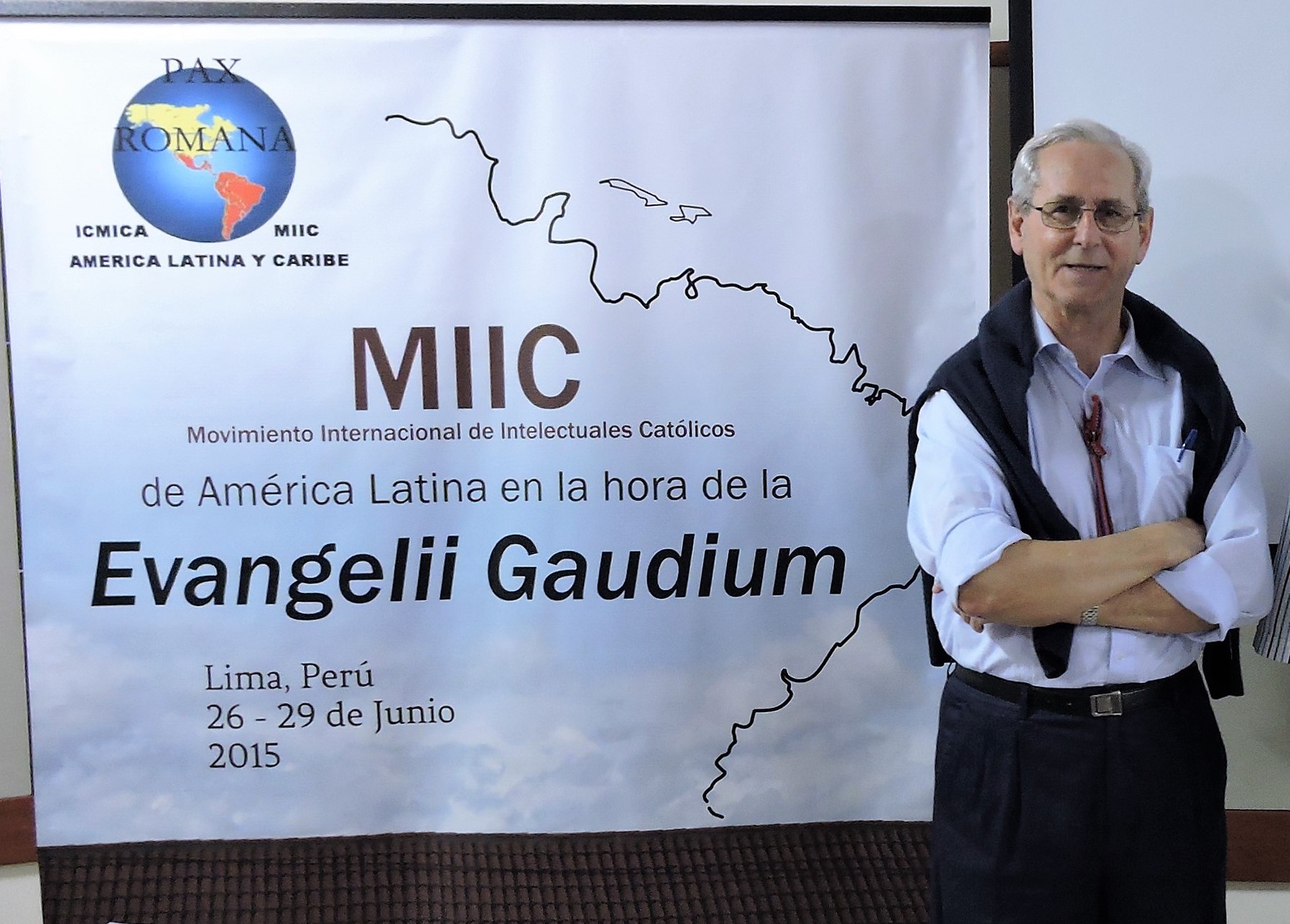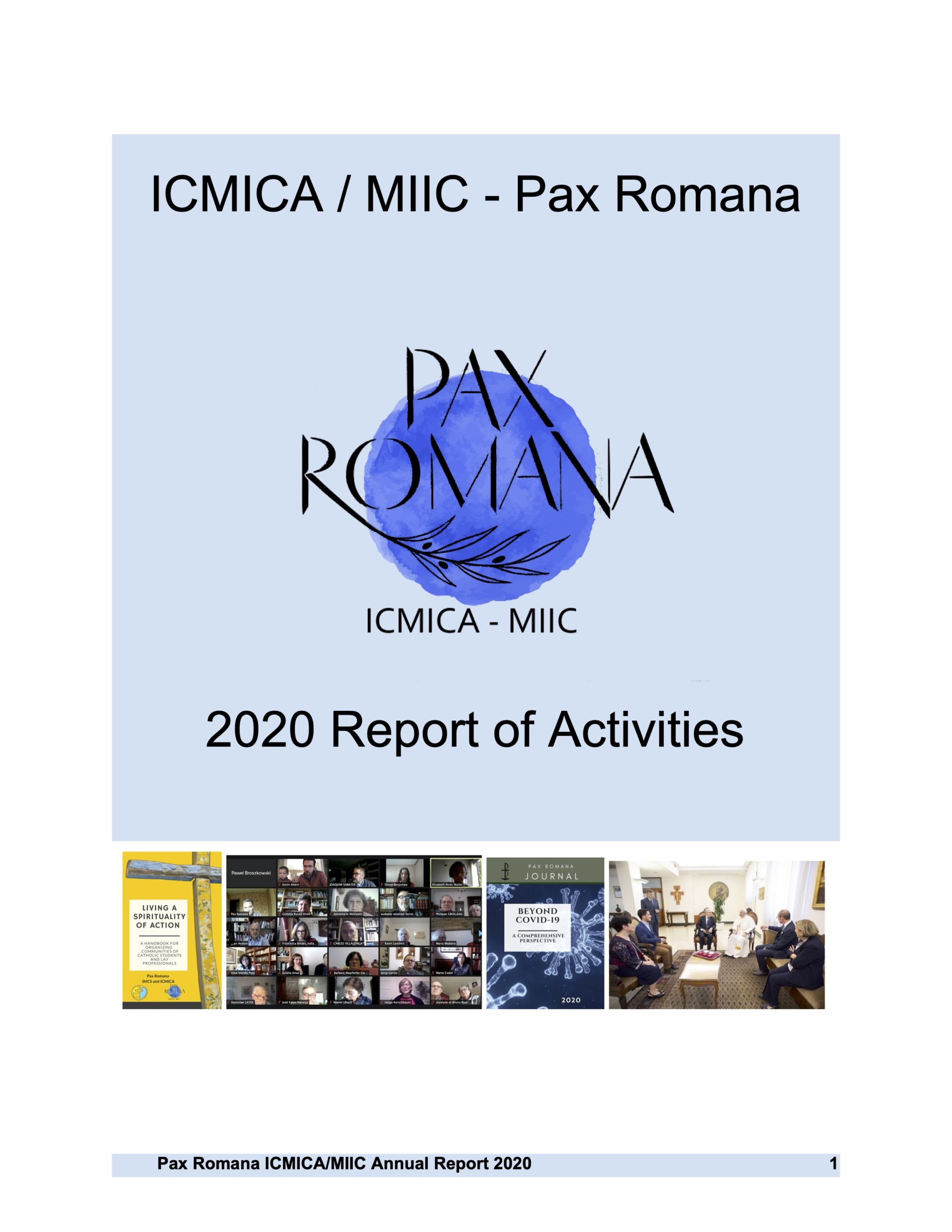Preparation of the worldwide Pentecost celebration.
We invite members to reflect on 3 questions related to the reading of the Gospel of Sunday May 31st.
The Gospel
(Jn 20:19-23)
On the evening of that first day of the week, when the doors were locked, where the disciples were, for fear of the Jews, Jesus came and stood in their midst and said to them, “Peace be with you.” When he had said this, he showed them his hands and his side. The disciples rejoiced when they saw the Lord. Jesus said to them again, “Peace be with you. As the Father has sent me, so I send you.” And when he had said this, he breathed on them and said to them, “Receive the Holy Spirit. Whose sins you forgive are forgiven them, and whose sins you retain are retained.”
The questions
– How has the Holy Spirit brought about peace in your place ?
– In your place, how do relate peace to mercy that calls for the forgiveness of sins ?
– How has the Holy Spirit helped you to increase in your faith like Thomas ?
– What is the one language that the Holy Spirit has taught us during this global pandemic? E.g. The one language that “we are interconnected.”
Sharing
Sharing will take place during the celebration, orally or in writing in the chat area. We also invite you to start it now by using the comments area below. Login is required to have access to this area.




– How has the Holy Spirit brought about peace in your place?
It could hardly bring about much peace in Hungary. The reason for this is the pandemic COVID-19 in the sense that the political power monopolistically held by a few has increased its physical and mental pressure and oppression on society. Laws to be adopted by the parliament can already be superseded by government decrees. This emergency regime has been introduced without a time limit.
Hungary has been experiencing since 2010 a conversion in its political system from a liberal democracy to an autocracy. While determining the constitutional character of the new state, explicit reference is made to Christianity. Although Hungary has had a secular state since 1868, the current political regime is attempting to devolve upon churches the performance of all the more social tasks. Besides, the current government seeks to exercise as much political influence over selected churches as possible.
These churches are far from condemning the uncritical exaltation of the nation-state. They do not argue in favour of the Christian who is a wayfaring stranger of God. They fall short of encouraging the faithful to follow the pattern of the Suffering Servant of God.
– What does Pentecost mean to me?
– Jesus of Nazareth gives the disciples the gifts of the Holy Spirit, and thus gives them power (John 20: 19-23);
– Jesus of Nazareth gives the disciples a grace, which he also received from the Almighty, and he passes it on to women and men;
– the Holy Spirit falls not only on some but on the community of disciples;
– the church is thus a community filled with charismatic force;
– the disciples also receive the power to heal souls, together with the gift, which is purely spiritual, although exercised by men;
– in the hierarchically structured Catholic Church, this power is held by the clergy, but they have to contend with a contradiction: it is unpredictable how the Holy Spirit descends to the extent that the Holy Spirit blows where it wills (John 3: 8);
– the risk cannot be precluded that some clericals will prove to be weak as human beings and will not make good use of, or even abuse, the power conferred on them;
– emerging clericalism is to be contrasted with the warning of apostle Paul: “Do not quench the Spirit” (1 Thess. 5:19);
– if clericalism prevails, the Catholic Church will operate as a closed system in an authoritarian manner; and
– if, however, the Catholic Church operates as an open system, then – according to Karl Rahner – the charismatic side of the church can manifest itself, and then it will be able to pass on the grace received from above.